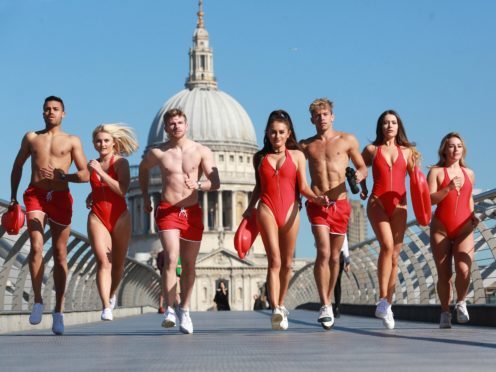Reality TV shows like Love Island send an “unbelievably dangerous” message to young people about body appearance, a leading headteacher has said.
Jane Lunnon, head of Wimbledon High School, has serious concerns about young people not being able to distinguish between what is real and what is fake.
Speaking at the Headmasters’ and Headmistresses’ Conference’s (HMC) annual autumn conference she said social media and reality TV are “image-obsessed”, leaving children to figure out what really matters.
Mrs Lunnon said: “I was particularly struck by the Love Island thing – it wasn’t just the way it dominated teen consciousness, it was the way it basically dominated public discourse.
“So what has happened that makes Love Island become something real and significant?
“And the problem attached to that is what are the long-term consequences of a world where a) we are celebrating something essentially trivial, and b) we are focused, such relentless focus on appearance and the presentation of brand self – which we know is a spillover from social media itself.
“And Love Island’s message, it seems to me, is conform and look beautiful otherwise you are not worthy of being loved.
“Which is unbelievably dangerous. And that is what our teens are picking up, of course, when they watch that, but also every time they go online.
“It is a real vicious circle, I think, in that regard.”
Mrs Lunnon said she felt the question needed to be asked about whether girls could have it all – be taken seriously when it comes to issues like the #MeToo campaign, while also retaining credibility when saying “trivial” stuff really matters.
She said: “We might have to decide which camp we are in – I think we might have to ask our girls and our boys, actually, which camp are we in?
“If we want to be taken seriously – the Me Too debate, hear us, we have agency, we have a voice – can we also be saying this trivial nonsense matters?”
She added she had concerns that young people were not taking themselves seriously by glorifying things that are trivial and insignificant.
Mrs Lunnon said shows like Love Island point to the “voyeuristic tendencies of our society”.
HMC chairman Shaun Fenton said: “I think young people can make choices about their diet of media and discern triviality from real news – fake news from real news.
“But if you overdose on a bad diet, if that is all you are presented with all the time, it is not in their interests.
“It is not in any of our interests to live in a society where we put on a pedestal the type of trivia that isn’t what we aspire to for our children, that isn’t what we think in our better moments we aspire to for ourselves.
“So there is nothing wrong with a bit of light-hearted entertainment at all.”
Mrs Lunnon explained that one way to tackle the effect of reality TV and social media would be for schools to remind students they belong to a community.
She added that in recent years she had witnessed pupils become increasing engaged in political debate, something she found promising.
“It is youthquake rather than snowflake, I think. I think we should stop telling kids that they are insignificant and fragile and vulnerable.
“The snowflake thing is not helpful. They could change things, and if we get them to take themselves seriously and take the world seriously, they will,” said Mrs Lunnon.
